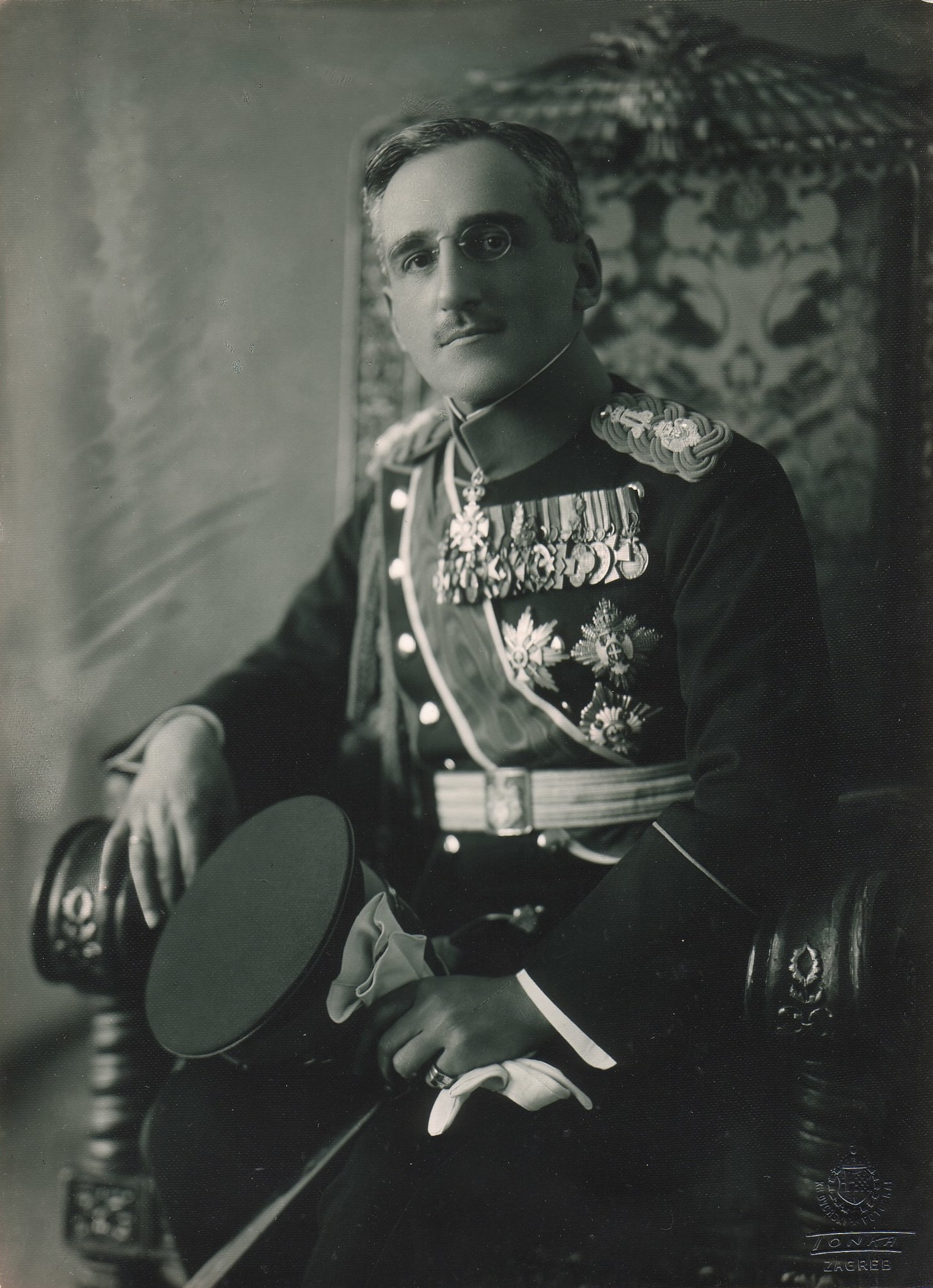
Alexander I of Yugoslavia
Alexander I (Serbo-Croatian: Aleksandar I Karađorđević / Александар I Карађорђевић, pronounced [aleksǎːndar př̩ʋiː karad͡ʑǒːrd͡ʑeʋit͡ɕ];[1] 16 December 1888 [O.S. 4 December] – 9 October 1934), also known as Alexander the Unifier,[2][3] was King of the Serbs, Croats and Slovenes from 16 August 1921 to 3 October 1929 and King of Yugoslavia from 3 October 1929 until his assassination in 1934. His reign of 13 years is the longest of the three monarchs of the Kingdom of Yugoslavia.
For other people with similar names, see Alexander of Yugoslavia (disambiguation) and Alexander of Serbia (disambiguation).
Alexander I
Aleksandar I Karađorđević
Александар I Карађорђевић
3 October 1929 – 9 October 1934
16 August 1921 – 3 October 1929
24 June 1914 – 16 August 1921
16 December 1888 [O.S. 4 December]
Cetinje Royal Palace, Cetinje, Montenegro
![]() Kingdom of Serbia
Kingdom of Serbia![]() Kingdom of Yugoslavia
Kingdom of Yugoslavia
1904–21
(end of active service)
Born in Cetinje, Montenegro, Alexander was the second son of Peter and Zorka Karađorđević. The Karađorđević dynasty had been removed from power in Serbia 30 years prior, and Alexander spent his early life in exile with his father in Montenegro and then Switzerland. Afterwards he moved to Russia and enrolled in the imperial Page Corps. Following a coup d'état and the murder of King Alexander I Obrenović in 1903, his father became king of Serbia. In 1909, Alexander's elder brother, George, renounced his claim to the throne, making Alexander heir apparent. Alexander distinguished himself as a commander during the Balkan Wars, leading the Serbian army to victory over the Ottomans and the Bulgarians. In 1914, he became prince regent of Serbia. During the First World War, he held nominal command of the Royal Serbian Army.
In 1918, Alexander oversaw the unification of Serbia and the former Austrian provinces of Bosnia, Croatia and Slovenia into the Kingdom of Serbs, Croats and Slovenes. He ascended to the throne upon his father's death in 1921. An extended period of political crisis followed, culminating in the assassination of Croat leader Stjepan Radić. In response, Alexander abrogated the Vidovdan Constitution in 1929, prorogued the parliament, changed the name of the country to Kingdom of Yugoslavia and established a royal dictatorship. The 1931 Constitution formalised Alexander's personal rule and confirmed Yugoslavia's status as a unitary state, further aggravating the non-Serb population. Policital and economic tensions escalated on the outbreak of the Great Depression, which devastated the predominantly rural country. In foreign affairs, Alexander supported the Balkan Pact with Greece, Romania and Turkey, and sought to improve relations with Bulgaria.
In 1934, Alexander embarked on a state visit to France in order to secure support for the Little Entente against Hungarian revanchism and Italy's imperialist designs. During a stop in Marseille, he was assassinated by Vlado Chernozemski, a member of the pro-Bulgarian Internal Macedonian Revolutionary Organization, which received assistance from the Croat Ustaše led by Ante Pavelić. French Foreign Minister Louis Barthou also died in the attack. Alexander was succeeded by his eleven-year-old son, Peter II, under the regency of his first cousin Prince Paul.
![]() Media related to Alexander I of Yugoslavia at Wikimedia Commons
Media related to Alexander I of Yugoslavia at Wikimedia Commons
